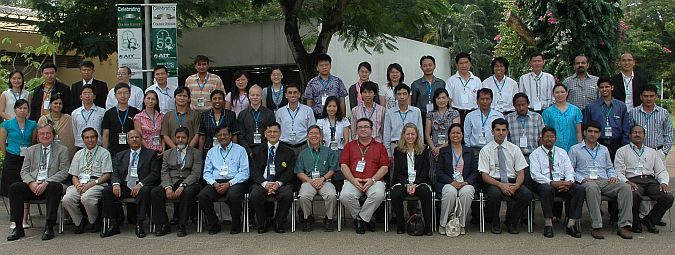Identifying trends in Asian irrigation, Mr. Facon revealed that between
1994-2001, both India and Pakistan had lost more than 5.5 million
hectares of canal irrigated areas. The FAO expert said that while canal
lining consumes 40 per cent of the total resources to build a canal,
certain factors seem to reduced its efficacy. For instance, within four
years of canal linking, seepage losses in Indian Punjab had returned to
their original levels. He added that feeding 1.5 billion more people by
2050 would require both more land and more water. The two possible
scenarios for increasing crop production are increasing the yield of
crops and expansion of irrigation land. “It is expected that the
advances in crop production will emerge from the agronomy and germplasm
fields of study,” he added.
Speaking at the inaugural function, Prof. Peter F Haddawy, Vice
President - Academic Affairs, AIT stated that the AIT would be
establishing a water center very soon. This would be yet another
initiative of AIT, which follows the establishment of the Yunus Center
at AIT by Nobel laureate Muhammad Yunus. He added that the Government
of Thailand is contemplating a major initiative in the field of
microfinance, a concept championed by Prof. Muhammad Yunus.
Earlier Dr Mukand S Babel, Coordinator, Water Engineering and
Management Field of Study, AIT stated that 12 participants, experts and
practitioners; and 20 doctoral students from nine countries were
participating in the workshop.
Dr. Jens Raunsø Jensen of Faculty of Life Sciences, University of Copenhagen, who is a
former faculty member of AIT, welcomed delegates from various
organizations and expressed the hope that the experience and knowledge
gained from this workshop would help participants in expanding the
frontiers of their knowledge.
The workshop is sponsored by the Danish Water Forum (DWF) and the International
Research School of Water Resources (FIVA).

Delegates and participants at the Regional
R&D Workshop on “Water saving irrigation practices in rice-based
canal systems” organized at AIT.
